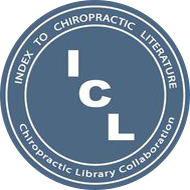Objective: The aim of this study was to compare the effects of verbal, tactile-verbal, and visual feedback on muscle activation of the lumbar stabilizers relative to extremity movers during an abdominal drawing-in maneuver when feedback is withheld.
Methods: This quasi-experimental study equally divided 54 healthy adults into 3 feedback groups (verbal, tactile-verbal, and visual) who trained twice per week over a 4-week period to perform supine abdominal drawing-in maneuvers. The percentage of maximum voluntary isometric contraction of rectus abdominis, multifidus (MF), erector spinae, and hamstrings (HS) as an outcome measure was acquired using surface electromyography. A 2-way factorial analysis of variance with bootstrapping allowed for comparison of post-pre difference scores across the interaction of feedback and muscle groups.
Results: Hamstring activation decreased in those receiving tactile-verbal feedback relative to an increase in participants given visual feedback. Furthermore, when using verbal feedback, HS activity increased relative to a decline in rectus abdominis, and when presenting visual feedback, HS activity increased relative to a decrease in MF. However, no post-pre changes were seen across muscles with tactile-verbal feedback.
Conclusion: Although tactile-verbal feedback did not increase MF recruitment, it produced less HS activity than visual feedback. Undesirable HS recruitment may reflect boredom or feedback dependency.
Author keywords: Electromyography; Exercise Therapy; Motor Skills; Formative Feedback; Dependency, Psychological; Overlearning; Abdominal Muscles; Back Muscles
This abstract is reproduced with the permission of the publisher; full text is available by subscription. Click on the above link and select a publisher from PubMed's LinkOut feature.
